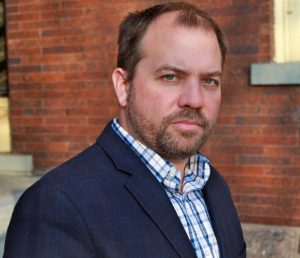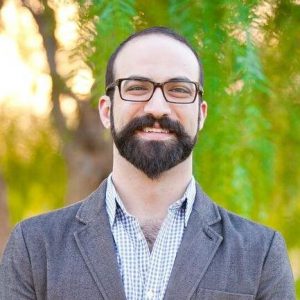
James K.A. Smith
By Walter Fenton-
James K. A. Smith, professor of philosophy at Calvin College, has recently sparked a healthy conversation about how the word “orthodox” (literally, “right belief”) is used these days, particularly when it is interjected into the volatile conversation regarding the church’s sexual ethics.
Among several thoughtful responses, Derek Rishmawy, a doctoral student in systematic theology at Trinity Evangelical Divinity School, offered his own gracious and learned response.
Smith pointedly expressed a concern shared by people across the theological spectrum:
“If the adjective ‘orthodox’ is untethered from [Christianity’s historic creedal confessions (e.g., the Apostles’ and Nicene Creeds and the great councils of the early church) that are rooted in Scripture], it quickly becomes a cheap epithet we idiosyncratically attach to views and positions in order to write off those we disagree with as ‘heretics’ and unbelievers.”
Ultimately, for Smith, it is a mistake to assume that just because a Christian affirms or allows for same-sex marriage or the practice of homosexuality, he or she is an unorthodox Christian believer.

Derek Rishmawy
Smith acknowledges that such affirmations cut against the grain of historical Christianity’s understanding of marriage and its sexual ethics, but argues labeling the affirmations “unorthodox” is to confuse the church’s core theological teachings with its ethics. And, as he rightly points out, the great creeds and councils of the church do not venture into a whole host of ethical issues.
His argument is not an attempt to legitimize same-sex marriage or a call to liberalize the church’s sexual ethics, but to caution that a careless use of the term “orthodox” runs the risk of applying it to issues that were never defined as orthodox or unorthodox in the first place.
Again, Smith’s essay is well worth a close read and due consideration. At a minimum, he challenges us to think about the historic understanding of the term and when it is or is not appropriate to use it.
Rishmawy is grateful for Smith’s essays and he acknowledges:
“The matter of sexuality and gender is one of the most controversial questions facing the church today. The conversations are inevitable and necessary, and we must not shirk them. Nor can we take them lightly. As Smith says, how we have these conversations matters. We need to conduct them with the love, grace, charity, and the courage of those whose lives are marked by the confession of God’s forgiveness.”
However, Rishmawy wonders if Smith has drawn too sharp a division between the church’s orthodox beliefs and its ethical standards. He says the church is presently contending with “current movements to normalize and sanction behaviors… that have been scandalous to it for 2,000 years.” So he writes:
“It doesn’t seem that the focus on sexual immorality is out of place, considering the focus it was given in the life of the early church. Consider the first church council, in Jerusalem (Acts 15). One of the first rules the apostles laid down for the Gentiles, in order that they be seen as Christians in good standing, was to abstain from ‘sexual immorality,’ a term which, in first-century Judaism, was largely informed by Leviticus 18, including its proscription of same-sex intercourse. This indicates just how central sexual ethics was to the practice and understanding of the gospel in the first century.
“Similarly, this focus continues in the writings of the Fathers. In fact, the Councils themselves had various canons attached to them which included much moral and ethical instruction beyond the specific definitions and creeds usually associated with them.”
For Rishmawy, an overly drawn distinction between the church’s ethics and its core theological confessions runs the risk of reducing some of its ethical standards to a simple matter of choice, with the assumption that they are not core to who we are as Christ followers. “Let me put it is this way,” he writes:
“Given this limited view of the term orthodoxy, it would be a coherent statement to say, ‘Joe is an orthodox Christian who believes adultery can be Christian behavior.’ Or, ‘Joe is an orthodox Christian who believes bearing false witness can be Christian behavior.’ Or, ‘Joe is an orthodox Christian who believes coveting can be Christian behavior.’ None of those statements is incoherent if ‘orthodox’ just means ‘formally aligns on key Nicene and Chalcedonian propositions.’ Yet it’s obvious in each case, somewhere Joe is severely out of line with the gospel (emphasis added).”
Both essays remind us how important it is for the church, from the sermon to the Sunday school class to the mission project, to constantly explore the nexus between our doctrine and the daily practice of our faith.
To read Smith’s essay and Rishmawy’s response, click HERE and HERE.
Walter Fenton is a United Methodist clergy person and an analyst for Good News.






It seems that Rishmawy raises some excellent points, and I would like to add another point that we dare not move to quickly past. Namely, we get to the Nicene and Chalcedonian creeds through a specific reading of Scripture. If we have really reached the point where are legitimately considering that the black and white words on the page sprinkled from Leviticus to Jude are not sufficient to define an activity as sin, then why on earth would we believe that the points DERIVED from Scripture “by good and necessary consequence” are going to stand?
The central understandings of the Trinity and the deity and humanity of Christ are “undeniable” for orthodox Christianity, but they are nowhere as clearly defined as many of the ethical principles that we are fighting over. So, if we compromise on the clear meaning of Scripture here, we will have no ground on which to stand to defend the central pillars of the Christian faith. That is completely untenable, and therefore a certain view of the Scriptures must be included in any meaningful definition of orthodoxy.
This dialogue implicitly shows that we’re currently re-encountering one of the ancient Gnostic problems in the 21st Century. That is the idea that as long as one holds the right ideas or beliefs (theology), then it doesn’t matter what we do with our behaviors (ethics). This was one of the premises of some Gnostic movements: that it was only our spiritual knowledge/belief that mattered, and not what we did with our bodies that was most important to obtain eternal life. But as Rishmawy points out, in the Judeo-Christian faith these two are held together. Our ethics are the fruit of our theological beliefs. They are fundamentally connected rather than two mutually-independent facets of Christianity.